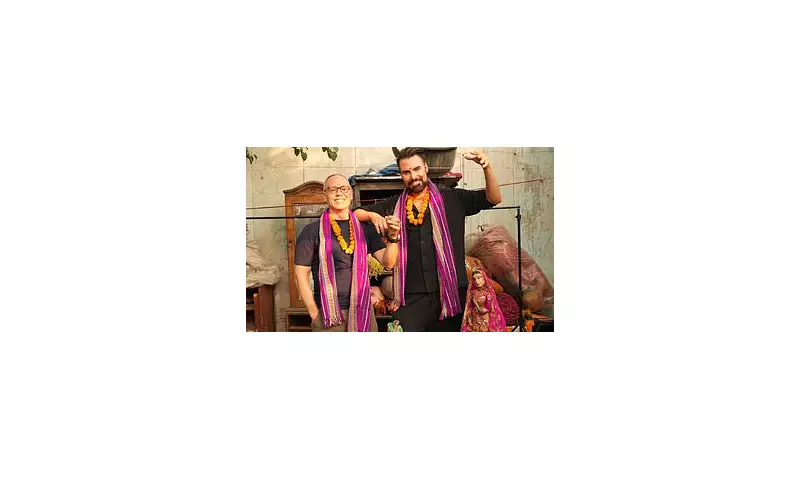
What begins as a promising travelogue swiftly veers into a sombre lecture on historical guilt in Rob Rylan's latest venture, a televised trip to Delhi. The programme, intended as a modern retreading of E.M. Forster's classic A Passage to India, often seems less concerned with the vibrant tapestry of modern Indian life and more preoccupied with delivering a stern moral lesson on the evils of the British Empire.
Rylan, known for his charismatic presenting style, appears hamstrung by a script demanding constant atonement. The breathtaking visuals of bustling markets and majestic architecture are consistently undercut by a narrative that insists on framing every interaction through the lens of colonial sin.
A Journey Overshadowed by Guilt
The documentary's most jarring aspect is its relentless focus on the past at the expense of the present. Instead of a genuine exploration of contemporary Indian society, culture, and aspirations, viewers are offered a one-dimensional history lesson. The complex, multifaceted relationship between Britain and India is reduced to a simple narrative of oppressor and victim, leaving little room for nuance or the celebration of India's incredible post-independence journey.
Missed Opportunities and Modern Connections
A truly insightful documentary might have explored how the legacy of the Raj influences modern Anglo-Indian relations in business, diplomacy, and culture today. It could have celebrated the immense Indian diaspora in Britain and their contributions to British life. Instead, the production chooses to wallow in what Stevens succinctly labels as 'hand-wringing' guilt, failing to bridge the past with the dynamic present.
For an audience tuning in for escapism and cultural enrichment, the programme delivers a heavy-handed and ultimately disservice to its subject matter. It portrays India not as a thriving, powerful modern nation, but primarily as a site of historical grievance, overlooking the very essence of what makes the country so captivating today.






